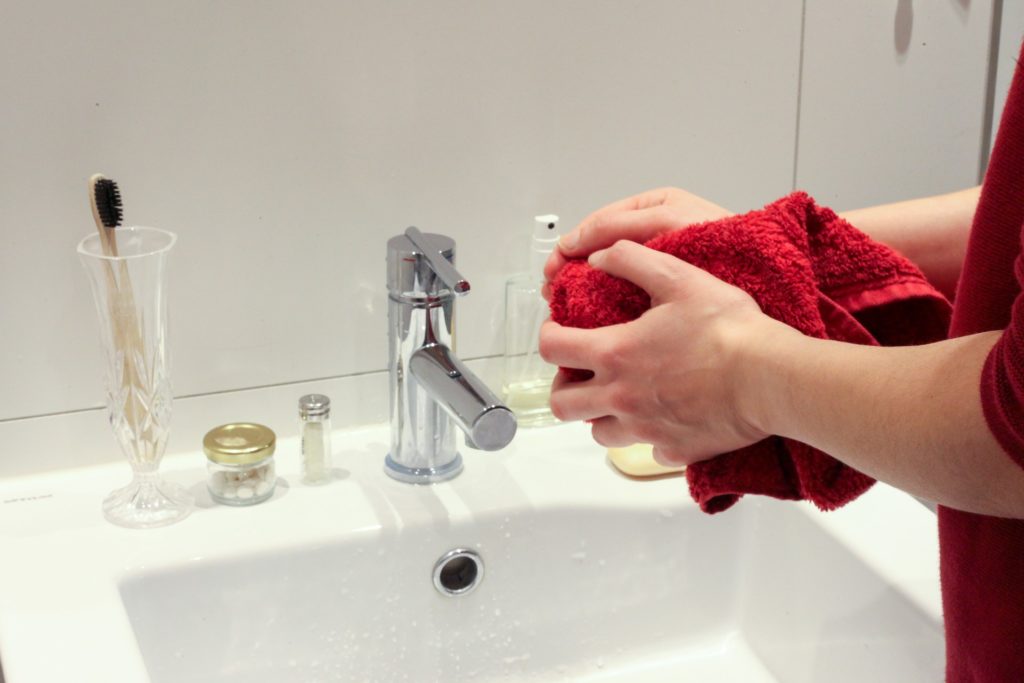If your 9-year-old son is playing with himself, it can be somewhat disconcerting. As a parent, it is hard to transition from having a young child with predictable actions to one that has grown up a bit and has begun to explore their bodies for satisfaction.
Fortunately, this behavior is entirely normal. Let’s discuss the importance of safe self-exploration, understanding puberty, and the need for privacy so that you are prepared to mentally and emotionally handle the subject when you discuss it with him.
Preteen Playing with Himself
You have likely seen your son touch himself before, possibly when he was a baby, and again as a toddler, then laughed it off or worried briefly before moving on when it stopped.
It makes perfect sense that the exploration of his surroundings when he was young would include touching his own body. However, as he gets older, the touching becomes less about exploring available textures and items and more about the physical reaction the sensation of touching causes, namely an erection.
As your son grows and begins to experience this physiological response, he is likely to notice how good it feels, resulting in a lot of touching to gauge the cause and effect. Whether through talking with his friends at school, seeing information on the internet, or simply discovering everything for himself, he’s bound to begin masturbating at some point near puberty. This touching behavior is the precursor to self-pleasure.
While that thought might cause you distress, namely because you are not ready for your son to grow up, when you notice these types of behaviors, that means it is time to talk to him and make sure that he knows these feelings are normal.
Many preteen boys become incredibly embarrassed about their physical response to visual, audible, and mental stimuli, and as awkward as a talk may be, it’s vital that he’s educated.
“The Talk”
Many parents know that one day, we will have to sit down with their kids and have “the talk” because sex education is woefully inadequate in our school systems.
Thankfully, today is not that day. However, while most of that discussion is focused on sexually transmitted diseases and preventing pregnancy, there’s another discussion you need to have about puberty and self-exploration that includes scientific information about bodily functions and stresses the normalcy of his physical reactions.

During this talk, give him the words he needs to know for the different parts of his genitals and physical states, such as penis, scrotum, shaft, frenulum, glans, and urethral opening, as well as flaccid versus erect. By using this terminology, you can keep the conversation informative and give him the tools he will need to discuss any issues later on with you or his doctor.
It’s also our job to ensure our children don’t hurt themselves in the pursuit of self-pleasure. This means that we need to be sure our children understand, even at the young age of nine, not to use particular objects and substances that can be harmful to their genitalia, like vacuum cleaners, vapor rub, and other household items.
You might think this is something they’ll automatically know, but with a quick internet search, you’ll find hundreds, if not thousands, of stories of people injuring themselves when they were young because they didn’t know any better.
Nearly every incident could have been avoided if a parent or guardian had spoken up and allowed their child to ask questions without judgment. Due to this ignorance caused only by his inexperience, you need to inform him what is safe to use when masturbating and leave it somewhere discreet for him at your earliest opportunity.
Dealing With His Embarrassment
Honestly, he’s bound to turn seven shades of red and not want to hear any of what you have to say. Still, if you don’t provide this information, he might not ever get the chance to know the correct terminology or what to avoid unless he goes to medical school or takes it upon himself to search the internet.
Many men do not know the proper names of the different parts of their genitalia and are ashamed to ask as they get older, nor do they understand why their bodies react a certain way when stimulated.
Think of it as how a doctor would speak with you. The subject matter might be embarrassing in some ways, but it’s still important information that your son needs to know, and it’s part of your job as a parent to provide it.

You can also broach the subject of female genitalia as well, and discuss the anatomy. This is crucial information he will need in the future. However, if you’d like to wait until he’s a bit older for that, during “the talk,” we understand. At the age of nine, it’s only necessary that he understands the proper names and functions, that what his body is doing is completely normal, and how to be safe.
You can speak with his pediatrician about obtaining informational packets on how to talk with your son if you need help or have his pediatrician broach the subject if you are genuinely uncomfortable doing so. You might also consider researching books written at his age level that will explain puberty to him.
There are many fantastic pieces of literature on the market gauged at helping boys understand their growing bodies and alerting them to the changes that will happen while giving them the terminology they need. Many of these books include sections on masturbation, as well.
Feel free to read the material beforehand to prepare yourself for any questions he may have after reading it. Be sure to let him know that questions are expected, and you will do your best to provide answers.
Privacy Is Important
Now that we have covered most of the crucial discussion topics, there is one more you might need to consider. Even though touching himself is normal, there’s a difference between doing this in the privacy of his bedroom or bathroom and doing it when around family and friends.
Hopefully, this is a behavior you noticed when you forgot to knock on the door, but if not, you’ll want to include a talk about the importance of self-exploration happening in a place of privacy.
Do not shame him when you bring this up. His sense of self, and future sexuality, will be heavily impacted by the conversations you have with him during his formative years.
If you use shame as a tool to correct his behavior, you’ll create negative associations with his self-exploration, and this can make for very confusing feelings later on and lasting repression. You want to be open, honest, and factual when guiding him on appropriate behaviors and leave any disparaging remarks out.
If he continues to touch himself in public after you’ve spoken with him about it, bring the subject up with his pediatrician. They will have excellent advice on how to handle any behavioral issues you are concerned about.
Final Thoughts
As always, thank you for caring enough about your child to seek advice on this subject. We know this transition isn’t easy, and we recognize that you are looking for guidance and navigation to help you through it.
Just know that you are not alone and that these issues come up with every child. There is nothing wrong with your son; he’s simply growing up.
